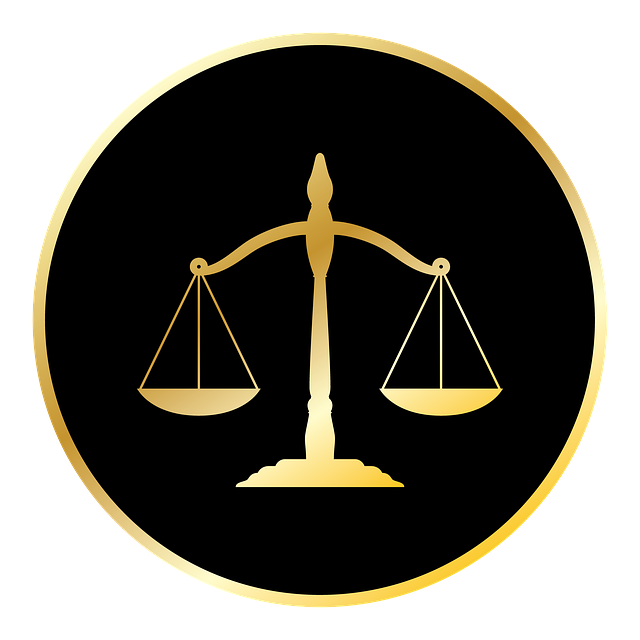
Category: Littleton Colorado Domestic Violence Attorneys
Littleton Colorado Domestic Violence Attorneys: A Comprehensive Overview
Introduction
In the realm of legal services, specialized attorneys play a pivotal role in addressing complex societal issues. One such critical area is domestic violence law, which demands dedicated professionals to advocate for victims and ensure justice. This article delves into the world of Littleton Colorado Domestic Violence Attorneys, exploring their role, impact, and significance within the legal framework. We will navigate through various facets, from understanding the core principles to forecasting future trends, to provide an all-encompassing perspective on this vital practice area.
Understanding Littleton Colorado Domestic Violence Attorneys
Definition and Scope
Littleton Colorado Domestic Violence Attorneys refer to legal practitioners specializing in representing individuals who have experienced or are experiencing domestic violence within the state of Colorado. This includes a range of cases involving physical, emotional, verbal, or sexual abuse between family members, romantic partners, or cohabitants. The primary focus is on protecting victims, ensuring safety, and holding perpetrators accountable through the legal system.
Historical Context
The concept of domestic violence law has evolved significantly over the years, reflecting societal changes in recognizing and addressing intimate partner abuse. In Colorado, the movement towards comprehensive domestic violence legislation gained momentum in the late 20th century. Key milestones include the establishment of protective orders, hotlines for victims, and specialized courts dedicated to handling domestic violence cases. These developments laid the groundwork for the specialized role of attorneys in this domain.
Significance and Role
These attorneys play a multifaceted role:
- Advocacy: They empower victims by providing legal counsel, assisting with protective orders, and offering support throughout the legal process.
- Protection: Through court appearances and legal strategies, they ensure the safety and well-being of their clients by seeking restraining orders and holding perpetrators liable.
- Education: Legal professionals raise awareness about domestic violence issues, educate the public, and collaborate with community organizations to prevent future incidents.
- Justice: They strive for fair and just outcomes, advocating for victims’ rights and ensuring that perpetrators face consequences for their actions.
Global Impact and Trends
International Influence
The concept of domestic violence attorneys has spread globally, influenced by the growing awareness and recognition of this issue across borders. Many countries have adopted similar models, adapting legal frameworks to suit their unique cultural and social contexts. This international exchange has led to the development of best practices and a shared understanding of effective strategies in combating domestic violence.
Regional Trends
- North America: The United States, including Colorado, has seen consistent efforts to strengthen domestic violence laws and support systems. Specialized courts and victim advocacy organizations are common across the region.
- Europe: European countries have made significant strides in providing legal aid to victims and implementing stringent penalties for perpetrators. The EU’s guidelines on countering violence against women have influenced national policies.
- Asia Pacific: Some Asian nations are witnessing increased awareness, with specialized support services and legal reforms gaining traction. However, cultural norms and societal attitudes remain challenges in certain regions.
- Africa: Domestic violence is a significant concern across Africa, and many countries are working towards establishing dedicated legal frameworks and support systems, often facing hurdles due to limited resources and traditional societal views.
Economic Considerations
Market Dynamics
The domestic violence attorney market is influenced by several factors:
- Demand: The need for specialized legal aid varies across regions, with urban areas typically experiencing higher demand due to larger populations and more active support networks.
- Competition: In Colorado, a competitive landscape exists, with various law firms and solo practitioners offering domestic violence services. This competition drives professionals to enhance their expertise and client care.
- Specialization: Attorneys who specialize in this area often command higher fees, reflecting the specialized skills and knowledge required.
Investment Patterns
Law firms investing in domestic violence litigation may focus on:
- Training: Providing ongoing training for lawyers to stay updated on legal developments and best practices.
- Technology: Adopting case management software and digital tools to streamline processes and improve efficiency.
- Community Engagement: Partnering with local organizations and initiatives to expand reach and impact.
Economic Impact
These attorneys contribute to the economy in several ways:
- Victim Support: By assisting victims, they can help individuals reenter the workforce, reducing long-term economic burden on society.
- Prevention: Early intervention and education can curb future incidents, potentially saving lives and reducing long-term social costs.
- Legal Industry: The specialized legal services drive revenue and contribute to the local economy through practice and support services.
Technological Advancements
Digital Tools and Resources
Technology has revolutionized the practice of domestic violence law:
- Case Management Software: Legal management systems help attorneys track cases, manage documents, and communicate with clients efficiently.
- Online Restraining Orders: Many states now allow victims to apply for protective orders online, providing a faster and more accessible process.
- Legal Research Databases: Online legal research platforms enable attorneys to access relevant case law and statutes quickly.
- Telelaw and Video Conferencing: These tools facilitate remote consultations and court appearances, especially beneficial for rural areas or victims with limited mobility.
AI and Predictive Analytics
Artificial Intelligence (AI) has the potential to transform several aspects:
- Predicting Risk: AI algorithms can analyze patterns and data to identify individuals at high risk of domestic violence, allowing for proactive interventions.
- Automated Document Review: Natural Language Processing (NLP) can review legal documents quickly, reducing attorney workload.
- Client Intake: Chatbots or virtual assistants can assist with initial client intake, gathering essential information for case evaluation.
Legal Strategies and Case Management
Common Legal Strategies
Attorneys employ various strategies to support their clients:
- Protective Orders: Seeking court orders to ensure safety, often including restrictions on contact and proximity.
- Restitution: Pursuing financial compensation for victims’ losses, including medical bills and property damage.
- Child Custody: Navigating custody arrangements when children are involved, prioritizing the best interests of the child.
- Negligence and Liability: Holding perpetrators accountable through civil lawsuits for negligence or intentional torts.
Case Management Practices
Effective case management is crucial:
- Client Communication: Regular updates, open lines of communication, and easy access to attorneys build trust and ensure client satisfaction.
- Document Organization: Well-maintained files and records are essential for court proceedings and client accountability.
- Court Collaboration: Working closely with judges, prosecutors, and victim advocates ensures efficient case processing.
- Support Services: Referring clients to counseling, shelter services, and other resources enhances holistic support.
Challenges and Ethical Considerations
Legal and Practical Challenges
- Evidence: Gathering conclusive evidence in domestic violence cases can be challenging, often relying on witness testimony and documentation.
- Victim Coercion: Some victims may feel pressured to recant or refuse legal action due to fear of retaliation or shame.
- Jurisdictional Issues: Cross-border cases or those involving non-citizen victims present unique challenges in jurisdiction and access to legal aid.
Ethical Obligations
- Confidentiality: Attorneys must maintain strict confidentiality, protecting sensitive client information.
- Conflict of Interest: Careful consideration is necessary to avoid representing both the victim and perpetrator simultaneously.
- Cultural Sensitivity: Understanding cultural nuances is vital when dealing with diverse communities, ensuring respectful and appropriate legal representation.
Public Awareness and Education
Community Outreach
Littleton Colorado Domestic Violence Attorneys actively contribute to public education through:
- Workshops and Seminars: Conducting sessions for community groups, schools, and organizations to raise awareness about domestic violence signs, resources, and support.
- Hotline Services: Many attorneys volunteer or contribute to 24/7 hotlines, providing immediate assistance and guidance to victims in crisis.
- Public Policy Advocacy: Collaborating with local and national advocacy groups to push for policy changes and improved legal protections.
Preventive Measures
The focus on prevention includes:
- Relationship Education: Promoting healthy relationship skills in schools and community programs to foster respect and communication.
- Media Campaigns: Utilizing media platforms to share stories of domestic violence survivors, raise awareness, and encourage victims to seek help.
- Community Support Networks: Building and supporting local networks of shelters, counseling services, and legal aid providers.
Forecasting Future Trends
Emerging Technologies
- Virtual Reality (VR) Therapy: VR can provide immersive experiences for victims to process trauma in a safe environment.
- Social Media Monitoring: Analyzing social media for patterns and indicators of potential domestic violence incidents.
- Blockchain for Records: Securely storing sensitive legal documents on blockchain could enhance data privacy and security.
Legal Reforms
- Enhanced Protective Orders: Expanding the scope and duration of protective orders to provide longer-term safety.
- Victim Compensation Funds: Establishing dedicated funds to compensate victims for financial losses, medical expenses, and trauma-related costs.
- Mandatory Reporting: Expanding mandatory reporting requirements for professionals who suspect domestic violence, especially in healthcare and education settings.
Collaborative Approaches
Future trends may include:
- Multi-Disciplinary Teams: Collaborating with social workers, mental health professionals, law enforcement, and community organizations to provide comprehensive support.
- Restorative Justice Practices: Involving perpetrators in restorative processes to address harm and promote healing for victims.
- Community-Based Initiatives: Empowering communities to take ownership of prevention and support through local programs and resources.
Conclusion
Littleton Colorado Domestic Violence Attorneys play a pivotal role in advocating for victims, holding perpetrators accountable, and shaping legal responses to domestic violence. Through specialized knowledge, strategic advocacy, and community engagement, they contribute to safer communities and improved lives. As technology evolves and societal awareness grows, the field continues to adapt, ensuring that those affected by domestic violence receive the support and justice they deserve.









